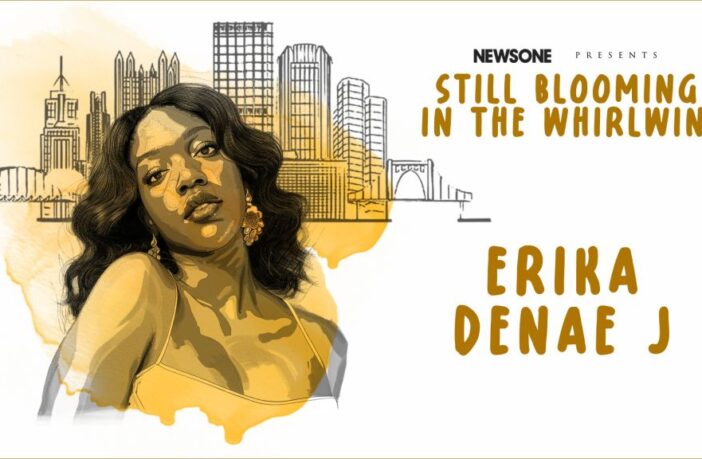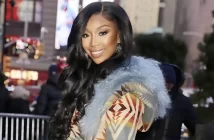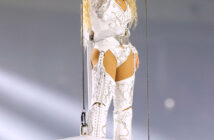Source: iOne Digital Creative Services
Erika Denae J’s art sits at the cross-section of music and healing. A Pittsburgh native whose musical lineage spans from Charlie Parker’s bebop to Erykah Badu’s neo soul, her songwriting is imbued with a sense of freedom found through introspection; by making the songs she needs, Denae J has found a way to connect to audiences in search of those same restorative sounds.
Her forthcoming sophomore album, In the Mood For, promises to build on her lauded 2022 debut, Rx Melodies, digging into Denae J’s diverse bag of influences to offer a sonic journey that spans genres and moods, united by her lush vocals and understated, vibe-heavy production. Denae J herself, meanwhile, is about to embark on a course of study in musical therapy – literalizing and deepening the connection she has always felt between art and wellness.
NewsOne Presents Still Blooming In The Whirlwind: Pittsburgh As A Black Cultural And Artistic Mecca
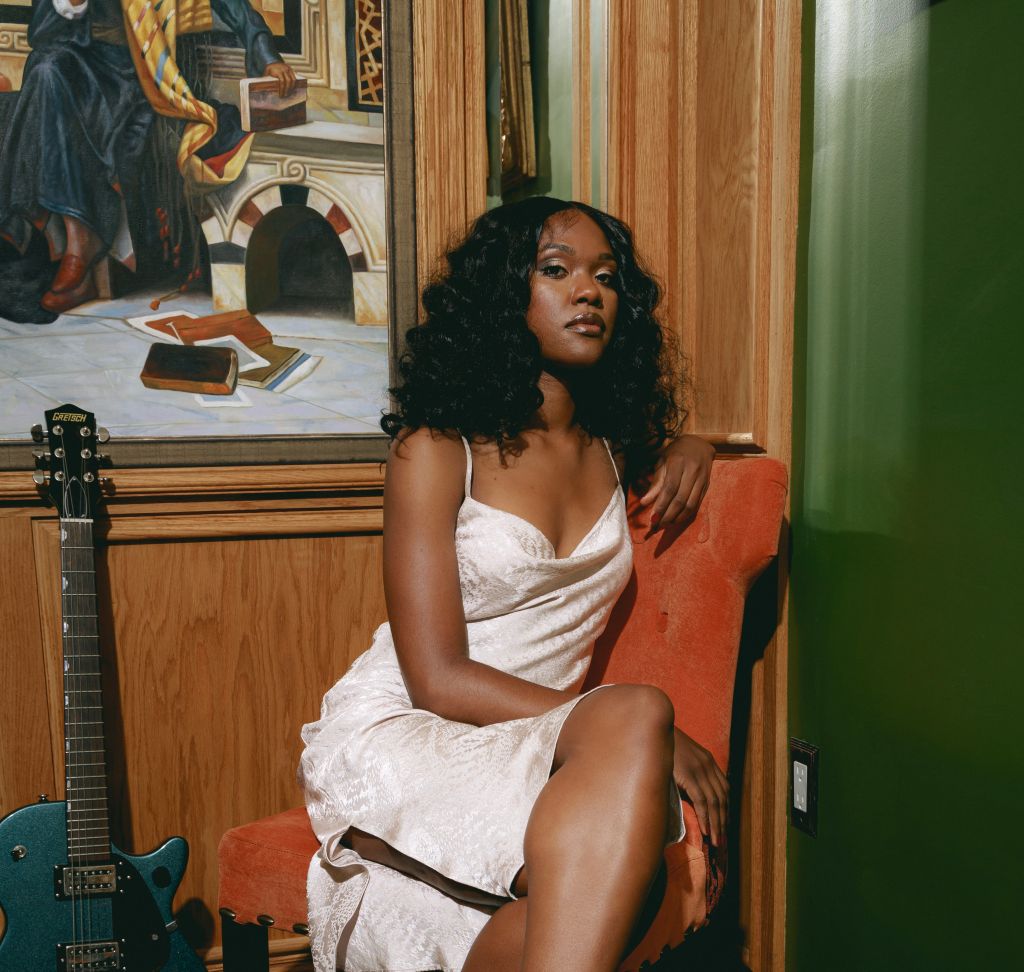
Erika Denae J. | Source: Dymond Jewell
Your new project is called In the Mood For. That phrase usually ends with the word love. It’s a movie title, a jazz standard that everybody from Nat King Cole to Heavy D has versioned. What does that title mean to you?
I didn’t pull from the jazz standard at all, but it’s ironic because jazz is my first love in music. People always ask, “Have you had vocal training? Formal musical education?” And I always tell them, “No, I grew up listening to Miles Davis and John Coltrane and Charlie Parker, and I just fell in love with the fluidity of it.”
So, this project is combining all the ways music has made me as an artist. No matter what mood I’m in or what genre I’m listening to – whether it’s gospel, R&B, neo soul, the blues, even acoustic soft rock stuff from the 1970s and early 1980s – no matter what mood I’m in, when I pull from those songs, it’s always filtering through my lens of jazz. But if I’m in the mood for jazz, then I’m in the mood to be chill and vibing out. If I’m in the mood for neo soul, I want to bop my head a little bit more. I need something to keep me going. [Music] always placates a specific need that I have. And so, with this project, it’s just like, “These are all of the things that [I’m comprised of] as an artist.” It’s the way that I can feel 100 percent okay with releasing music and not caring about genre. But jazz always sits at the top. Jazz feels like home for me.
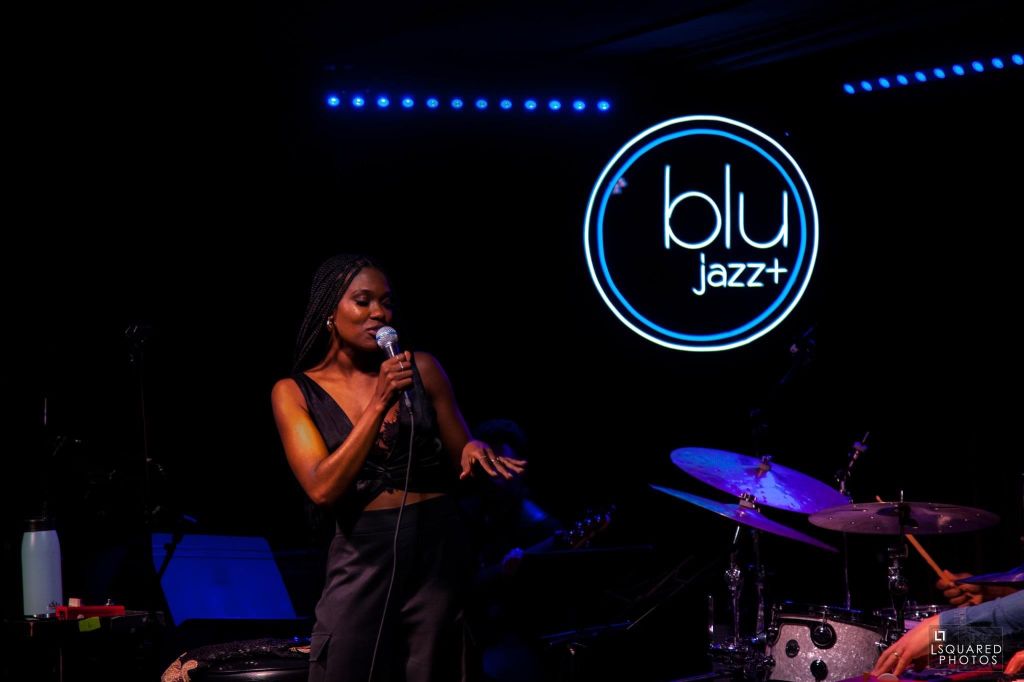
Erika Denae J performing at Rubber City Jazz and Blues Festival in Akron, Ohio, in September 2023. | Source: L Squared Photos
What’s your earliest musical memory?
Oh, my goodness. As a young girl, my mom would blast BeBe and CeCe Winans. So, gospel was ingrained early on in my life. And then with my dad, I remember a lot of Michael Jackson, a little George Benson, a little Earth Wind & Fire, and Boyz II Men. We would drive down to Montezuma, Georgia, for family reunions, and my grandfather would play Ray Charles nonstop. When the Ray Charles movie came out, I already knew everything. And on my father’s side, we would have cookie bakes around Christmas time, and my aunts would play Sade.
The heavy jazz came from my coach for cross-country, Coach Flynn. Once, he was driving us home from practice, and “So What” by Miles Davis was playing in the van, and it just captivated me. I went home that night, looked up the song, and played it over and over. Then I started to learn about his other songs. And then I found out about John Coltrane and Charlie Parker and Dave Brubeck. I would mimic the horns—I was scatting the horns before I knew what scatting was. It really helped to develop me as a singer, because I was doing all of these different scales before I even knew what they were.
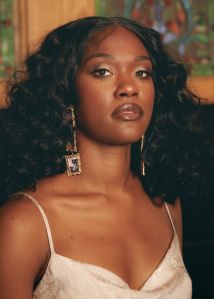
Source: Dymond Jewell
What’s the process of writing and composing this album been like? Did you come in knowing the scope, and kind of writing to fulfill that arc, or are you finding that the individual songs are showing you what the album is? In other words, is this album more of a novel or a short story collection?
It’s definitely a novel. I am trying to fulfill the concept, the arc of the concept. So, I intentionally said, “I want to have an overtly gospel track.” And I wanted to have something that sits in the standard jazz field where you have the brushes on the drums and you’re really listening to the trumpets, and there’s a lot of space and movement. And then I also have a neo soul song where the bass is bumping, like some D’Angelo type stuff.
I pulled from genres that I really love. And I tried to form the songs, the outlines of them. I’d say, “This is specifically what’s going to go into these songs production wise. I want this sound, I want this type of musician, this type of instrument.” But then as I started to develop the songs, some took their own forms. So, if the song is going to start one way and have a transition into something else, that’s okay, too. I want it to just feel like me.
The album is going to have a companion book. How does that fit in with the music?
The book is going to go in depth on where the songs came from. It’s going to have some poetry, some prose, some lyrics from the songs, line sketches, just to tie things together. It’s more than likely going to be a memoir because it will pull from stories.
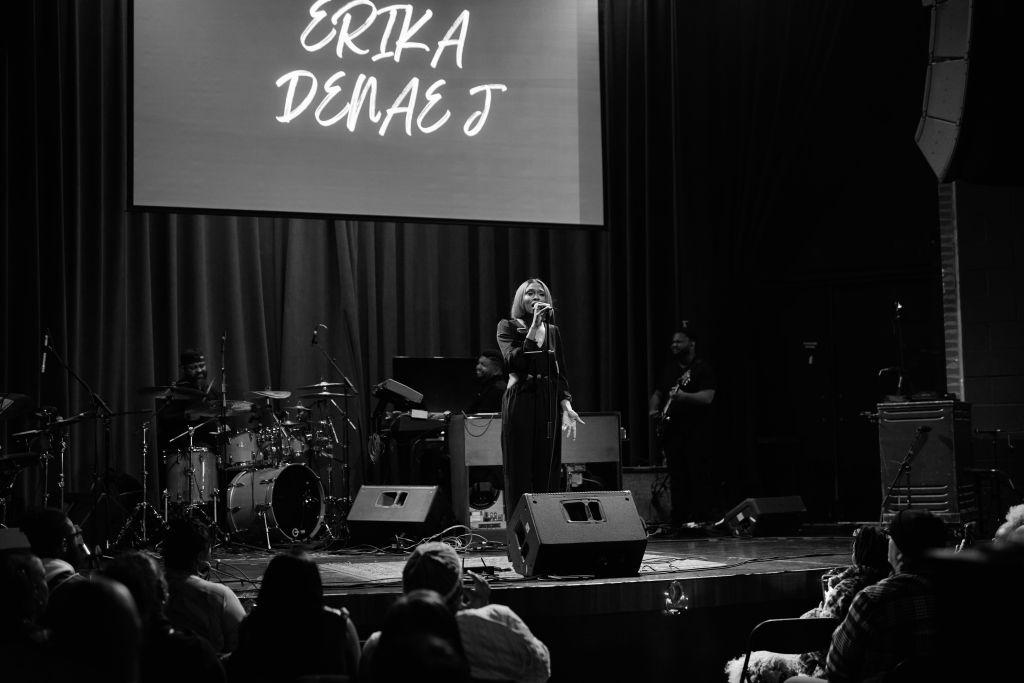
Erika Denae J performing at “Soon As I Get Home” concert at Thunderbird Cafe, in Pittsburgh in January 2024. | Source: Nana Effah Raymond
A major component behind the book is that I want to encourage people. I’m planning to go to school for music therapy in the fall, and I find myself trying to combine spaces of health and holistic socio-emotional health through my music, songwriting, writing, and poetry. The book is going to have space for the reader to be able to connect with any experiences that they may have had – so that they can process, too. It’s really cathartic having a space to reflect. It’s important in this time.
It’s interesting to think about music and therapy and music as therapy. That’s been a theme in your work before; your last album is called Rx Melodies.
When I came back from living in Spain, that’s when I learned that music was a healing tool for myself. I was dealing with a lot of depression, and I didn’t go to medical school, which was what I really wanted to do to help people. And so over there, I learned how beautiful it was when you sat down, spent time with yourself, and just released how you felt. It was releasing what was on my heart and mind.
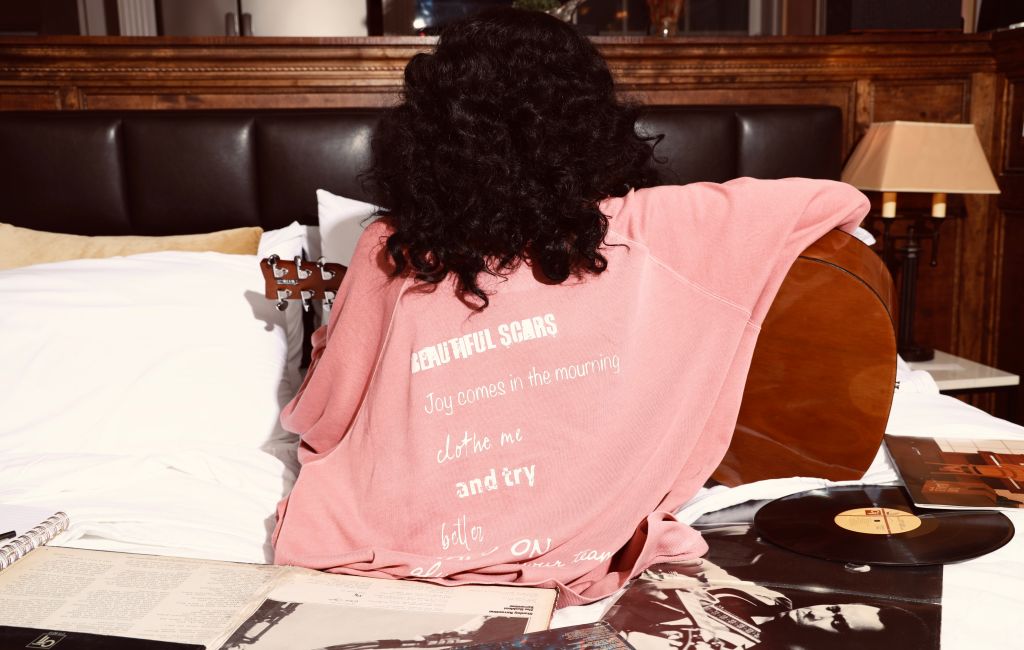
Erika Denae J promoting her 2022 debut EP Rx Melodies. | Source: Dymond Jewell
A lot of that album was songs that I’ve literally sang to myself in times of needing encouragement, in times of needing to pick or build myself up. And then within eight to nine months [of coming back from Spain], I found out that I was going to school for music therapy. I think I was supposed to release that project first to understand that this is a real thing, and then walk into the practice, study, and research of it—and then combine it deeper into my own music and say, “These songs can actually support you through depression or anxiety or whatever you’re experiencing.”
Adam Mansbach is a novelist, filmmaker (Barry), and writer whose work has appeared in The New Yorker, The New York Times Book Review, Esquire, The Washington Post and The Guardian. The Golem of Brooklyn is his latest book.
SEE ALSO:
Interdisciplinary Artist Alisha B. Wormsley Breaks Down Matriarchal Survival Strategies, Decolonizing Time And Her New Film
Bonita Lee Penn Seeks To Connect Her History, Culture And Beliefs To Who She Is Today
10 photos
